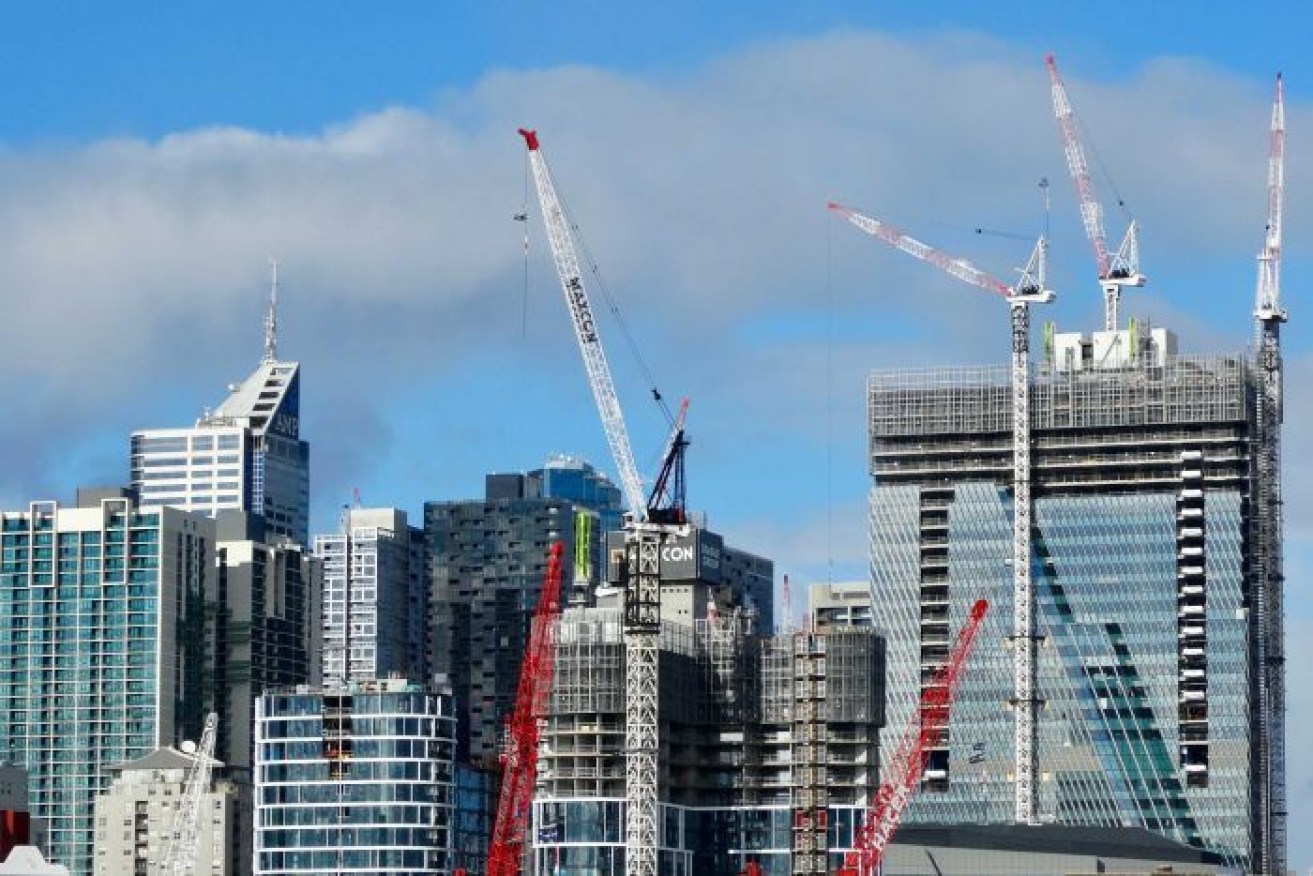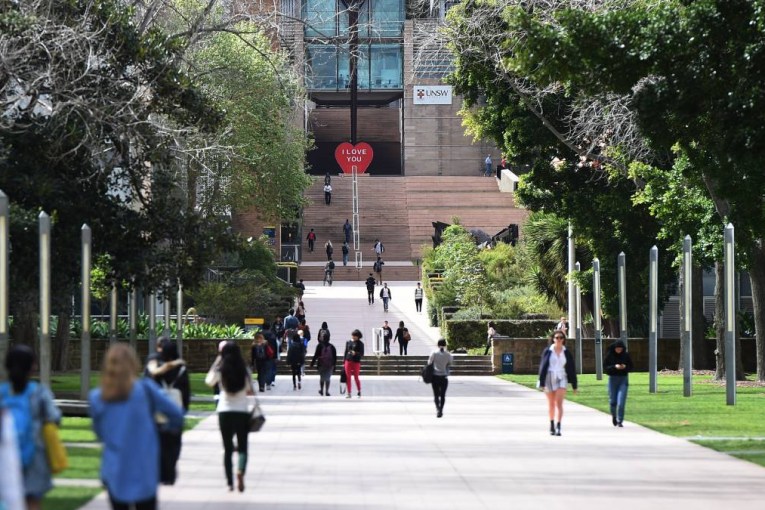Construction fears over cladding crisis

If building surveyors cannot get indemnity insurance, construction activity will stop. Photo: ABC
The cladding crisis has escalated with Victoria’s building industry in danger of grinding to a halt because building surveyors can no longer get professional indemnity insurance.
To be a registered surveyor with the Victorian Building Authority (VBA) a person must have professional indemnity insurance, without any exemptions.
The same rule applies in NSW and Queensland.
But insurance companies are no longer providing this option and the industry is warning work on buildings may simply stop.
Other surveyors have reported that the cost of their insurance premiums and excesses have more than quadrupled.
Building surveyors are responsible for signing off on buildings, including building permits and occupancy permits.
While local government building surveyors can also sign off on permits, private building surveyors have been the preferred option for most of the building industry.
The chief executive of the Australian Institute of Building Surveyors, Brett Mace, warned the building industry could start to slow down over the next year.
“We think it’s a huge crisis,” Mr Mace said.
“If building surveyors are unable to be registered then you’re not going to be able to provide approvals and the construction industry will come to a stop.”
The Master Builders Association (MBA) said up to 30 per cent of building surveyors are required to renew their insurance by the end of June.
“If they are unable to obtain insurance or the insurance offered to them is non-compliant due to exclusions being imposed, many building projects could come to a standstill,” the MBA said in a statement.
Victorian Premier Daniel Andrews is aware of the insurance problem, telling a Property Council lunch that the state had stepped in as an insurer of last resort in the past for other sectors.
“I am very much aware of how real this issue becomes next week, I’ve had some conversations with ministerial colleagues this morning about this very matter,” Mr Andrews said.
The problem, he said, was not unique to Victoria.
“The feds should be involved, that would be good, but we won’t let anybody be uninsured. There are some steps we can take,” Mr Andrews said.
“We won’t leave anybody stranded, we won’t leave anybody with crippling restrictions on their practice.”
He told the Property Council the Government wanted no “inhibitors” on the housing and building sector.
Since the cladding crisis exploded after London’s Grenfell disaster, insurance agencies have introduced exemptions, which do not cover cladding, on their policies for building surveyors.
The last agency to cover cladding, Landmark Underwriting, will no longer provide such cover as of July, building surveyors have confirmed.
That means building surveyors will no longer be able to find appropriate insurance as policies expire, forcing businesses to shut down operations.
“If they don’t have the compliant insurance, they can’t be registered and therefore they can’t provide building approvals,” Mr Mace said.
“It suddenly won’t stop overnight.
“But as building surveyors can’t get the insurance, you’ll find them going out of business and there’ll be a slowdown in the construction industry.
“If you don’t have anyone left being able to be registered in 12 months then it’ll stop.”
There is an acknowledgment from senior figures that it is a serious problem, with fire engineers also aware of the growing crisis.
“It’s a disaster,” said Jonathan Barnett, national chair of the Society of Fire Safety Engineers Australia said.
“They’re the ones who sign off on a building.
“They certify that it was built properly, they provide building permits, they provide the occupancy permits. If they’re not doing that I think construction stops.”
Across the sector, action is being demanded from the Victorian Government — it says it is aware of the issue and working to fix it.
The revelations came as Mr Andrews told ABC Radio Melbourne that taxpayers would contribute to fixing the problems, as well as new laws to crack down on phoenix companies that set up for the sake of one project.
Victoria will also set up a new dedicated authority — Cladding Safety Victoria — to deal with the crisis.
There are thousands of buildings in Victoria with non-compliant cladding.
Government and industry are grappling on how to rectify dangerous cladding, particularly who pays for remediation works and if anyone is liable.
“Professional indemnity is the canary in the coal mine for this industry,” one senior figure told the ABC.
Building surveyors, who did not wish to be named, said the Government needed to step in or the whole building sector would stop operating.
Opposition planning spokesman Tim Smith said the Andrews Government had not done enough to respond to the problem.
“The building industry will grind to a halt if private building surveyors cannot be covered by professional indemnity insurance,” he said.
“This cladding issue is a ticking time bomb for the whole building industry, not just homeowners who now live in worthless fire traps.”
A website set up under the name Cladding Safety Victoria suggests the State Government will create a new one-stop-shop agency to tackle the crisis.
A cached search of the Cladding Safety Victoria (CSV) website, set up five days ago but now displaying an error message, suggests the new body will provide “free services and assistance to apartment owners faced with removing combustible cladding”.
The State Government has not formally announced the creation of the new body, but Mr Andrews told ABC Radio Melbourne he would make “substantial, very detailed announcements very soon”.
The draft website said CSV’s aim was to “to get buildings fixed and made safe, quickly” and it would oversee six phases of the construction process.
What is not clear on the webpage is who would foot the bill for the free services.
Although he was not commenting on the establishment of CSV directly, Mr Andrews said of addressing the housing crisis: “There will have to be taxpayers’ money, there will have to be government allocations.”
“There can potentially be some money — some — recovered from those who have done this, have basically committed these errors and have used this dodgy product,” he said.
The state budget earlier this year earmarked $160 million to remove combustible cladding from government buildings.
Earlier this year, owners of apartments at Melbourne’s Lacrosse tower were awarded more than $5.7 million in a class-action lawsuit — but similar action over other buildings has been rendered impossible because the construction companies went bust.
“We’ve had a situation where a whole range of phoenix companies, they exist for the purposes of building that particular building, and then they’re gone at law afterwards,” Mr Andrews said.
“We don’t rule out making some legislative changes so that we can go out after some of these phoenix companies.”
Mr Andrews acknowledged unit owners had been “basically stranded” and unable to sell their properties while investigations were ongoing.







